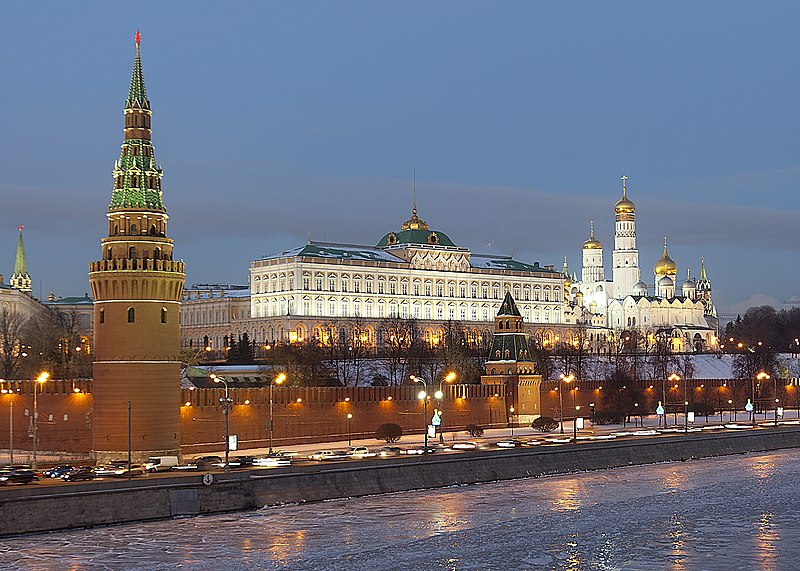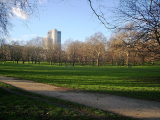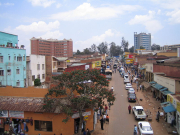
In a significant legal development, the Russian state is set to face a trial for its failure to meet a $60 billion (£49 billion) payment obligation to former shareholders of the defunct oil giant
Yukos. This decision comes after a British judge rejected Russia's request for immunity in the case, marking a blow to Vladimir Putin's administration.
The ruling by London's High Court now paves the way for the Kremlin to address a lawsuit brought by Hulley Enterprises, Yukos Universal, and Veteran Petroleum, three former shareholders of Yukos. They are seeking to enforce a 2014 arbitration award issued by a Dutch tribunal, which determined that Russia owed them $50 billion in compensation.
Yukos, once a sprawling energy conglomerate responsible for over a fifth of Russia's oil production, came under the Kremlin's control in 2003 after its former head, Mikhail Khodorkovsky, fell out of favor with President Putin. Khodorkovsky, who was Russia's wealthiest man at the time, was subsequently imprisoned on charges of tax evasion and fraud, a development that significantly bolstered Putin's political dominance.
Since the Dutch arbitration ruling nine years ago, a series of legal battles have unfolded on an international scale, causing the owed amount to surge to nearly $60 billion due to accumulated interest. The former Yukos shareholders are now striving to enforce the arbitration award in the United Kingdom, the United States, and the Netherlands.
In the London courtroom, Russia's legal representatives contended that the country had never submitted to Dutch arbitration, questioned the suitability of the UK as the jurisdiction for the case, and sought state immunity from legal action. However, these arguments were rejected by Mrs. Justice Cockerill, a High Court judge, who denied Russia's request for immunity and the option to appeal. Russia still has the option to directly apply to the Court of Appeal for permission to contest the ruling.
Tim Osborne, the CEO of the GML shareholder group, which previously held a majority stake in Yukos through its subsidiaries, welcomed the court's decision as a significant step toward holding the Russian Federation accountable for its alleged illegal actions.
Prior to its seizure, Yukos had been a major player in Russia's oil industry, responsible for producing over a fifth of the country's oil output and amassing substantial wealth for its owner, Mr. Khodorkovsky.
Khodorkovsky's outspoken criticism of Putin, accusing the Russian president of corruption and accepting significant bribes, triggered a swift and dramatic response. Just eight months later, Khodorkovsky was arrested at a Siberian airport, and he and his business partner, Platon Lebedev, were subsequently imprisoned on charges of tax evasion and fraud, labeled by Amnesty International as "deeply flawed and politically motivated."
Yukos suffered asset seizures by the Kremlin, which then sold them to political allies in the aftermath of the company's demise. In the years that followed, former Yukos shareholders engaged in a protracted legal battle to seek compensation by suing the Russian state in The Hague.
The charges were filed under the Energy Charter Treaty, an agreement that Russia signed in 1994 to provide assurance to investors regarding its commitment to the rule of law and international investor rights.
In 2014, an independent tribunal overseeing the arbitration in The Hague unanimously ruled that Yukos had been unlawfully expropriated as part of a political vendetta against Khodorkovsky. The tribunal awarded GML, the holding company representing the former shareholders of the oil company (excluding Khodorkovsky, who had already transferred his stake), compensation amounting to $50 billion (£41 billion), marking the largest-ever payout of its kind.
However, obtaining the funds has proven to be a formidable challenge, as Russia has sought to contest or evade the ruling. A lawyer representing Russia in the London case declined to comment on the recent ruling, according to Reuters. Photo by Pavel Kazachkov, Wikimedia commons.







































